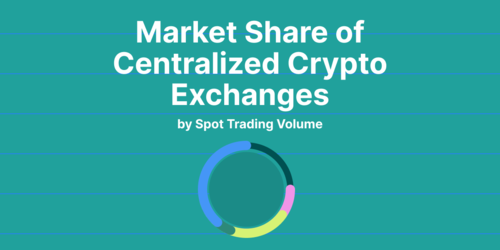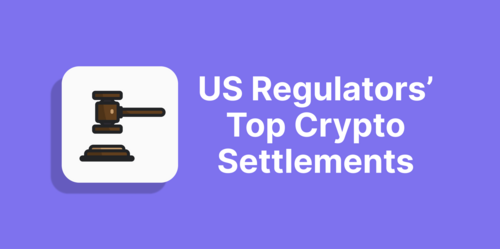eToro is a publishing partner of CoinGecko
Today we’ll be looking at Binance Coin (BNB), which is the fuel that powers the Binance Ecosystem. For those who don’t know, Binance is one of the leading cryptocurrency exchanges ranked by CoinGecko’s Trust Score. This article focuses more on the basics of Binance Coins, its features, purposes and use cases.
What is Binance Coin (BNB)?
Binance Exchange issued the Binance Coin (BNB) back in 2017 through an Initial Coin Offering, 100 million BNB was offered from the total supply of 200 million BNB. It was offered at the price of $0.15.
Here’s BNB’s latest price:

BNB was initially an ERC-20 token on the Ethereum Network but has since swapped to BEP2 BNB tokens on its own Binance Chain Mainnet on April 18 2019.
BNB Coin Burn?
The current total supply has decreased from 200 million as Binance burns its tokens quarterly. The burnt BNB represents the activity across the various Binance platforms, such as its spot, margin and futures exchanges. To date, 20,116,011 BNB have been burnt from the total supply (around 10%!). Burns will continue until 50% of the total supply is burnt, meaning eventually there will only be 100 million BNB remaining.
BNB Use Cases
1. Trading Fee Discounts!
Binance - being the operator of one of the largest cryptocurrency exchanges in the industry, Binance has offered lucrative discounts to users who own BNB. Each trade on their exchange costs fees that are paid with the traded assets, but you can also choose to pay with BNB. By doing this, you will get a special discount.
On a side note, Binance created a Secure Asset Fund for Users (SAFU) and funds this with 10% of all trading fees. This is intended to protect users and their funds.
2. Binance Account Tier
Users with account balances in BNB and 30 days accumulated trading volume above certain thresholds are given VIP tiers with additional fee discounts and perks.
3. Dust Conversion
Users can convert non-tradeable amounts of various cryptocurrencies, called dust, in their Binance account into BNB.
4. Gas for Binance Decentralised Exchange (DEX)
Binance DEX is a decentralized exchange running on the Binance Chain and was launched in 2019. BNB is used in the DEX to assist in transactions, and it works similar to how gas works to pay for Ethereum transactions.
5. Participate in Binance Launchpad
Binance Launchpad is a platform for selected projects to launch an Initial Exchange Offerings (IEO). In order to participate in an IEO, Binance Launchpad selects eligible traders by way of lottery, for which the trader needs to hold a certain amount of BNB in their trading account. If the trader is eligible to take part in the IEO, they will be able to purchase the IEO tokens using the BNB they held in their account.
6. Spent as Cryptocurrency
BNB has several partnerships with companies that allow you to spend your BNB in a variety of ways, from paying for travel expenses to buying gifts, property, and more!
Holding and Storing Binance Coin (BNB)
Binance Coin (BNB) is supported by various hardware and software wallet providers. The choice between hardware and software wallets is mostly a balancing act between convenience and security to the user. We’ll provide a quick rundown on them in this section.
Generally, hardware wallets (e.g. Ledgers) are non-custodial wallets that keep private keys of a wallet offline and only the owner knows it. This is arguably the safest option for storage as the user has full ownership of the coins, but is likely the least convenient, as it requires the user to operate additional hardware to spend/use the cryptocurrency.
Non-custodial software wallets (e.g. Trust Wallet, Atomic Wallet) are the next option in terms of safety compared to hardware wallets, although they are likely more convenient. The private keys are also owned by the user, but since the wallet is kept on an online device (eg. the phone), you will run the risk of losing your cryptocurrency from hacks if a hacker gains access to your smartphone.
Lastly, and arguably the most convenient yet risky storage method would be storing funds on custodial wallets (eg. on a centralized exchange such as Binance) as users do not own the private keys to the funds. However, a hack on their servers can potentially cause users to lose their funds, much like what happened during the infamous 2014 Mt. Gox hack, which recorded a massive loss of 850,000 BTC, most of which are customer funds.
For more information on BNB, you can check out our coin page here, along with this short intro by Binance Academy!
eToro is a publishing partner of CoinGecko

CoinGecko's editorial team comprises writers, editors, research analysts and cryptocurrency industry experts. We produce and update our articles regularly to provide the most complete, accurate and helpful information on all things cryptocurrencies. Follow the author on Twitter @coingecko









 Or check it out in the app stores
Or check it out in the app stores